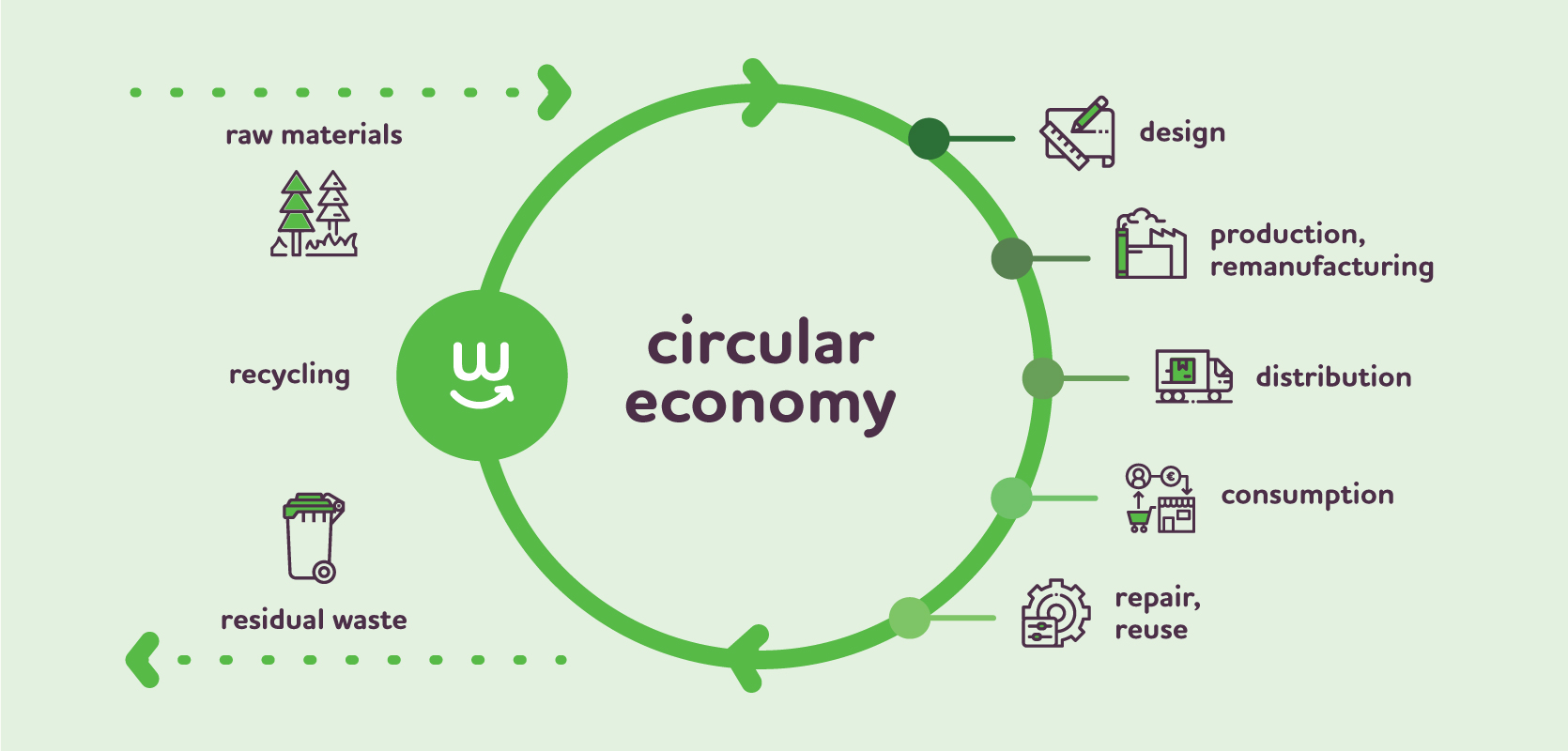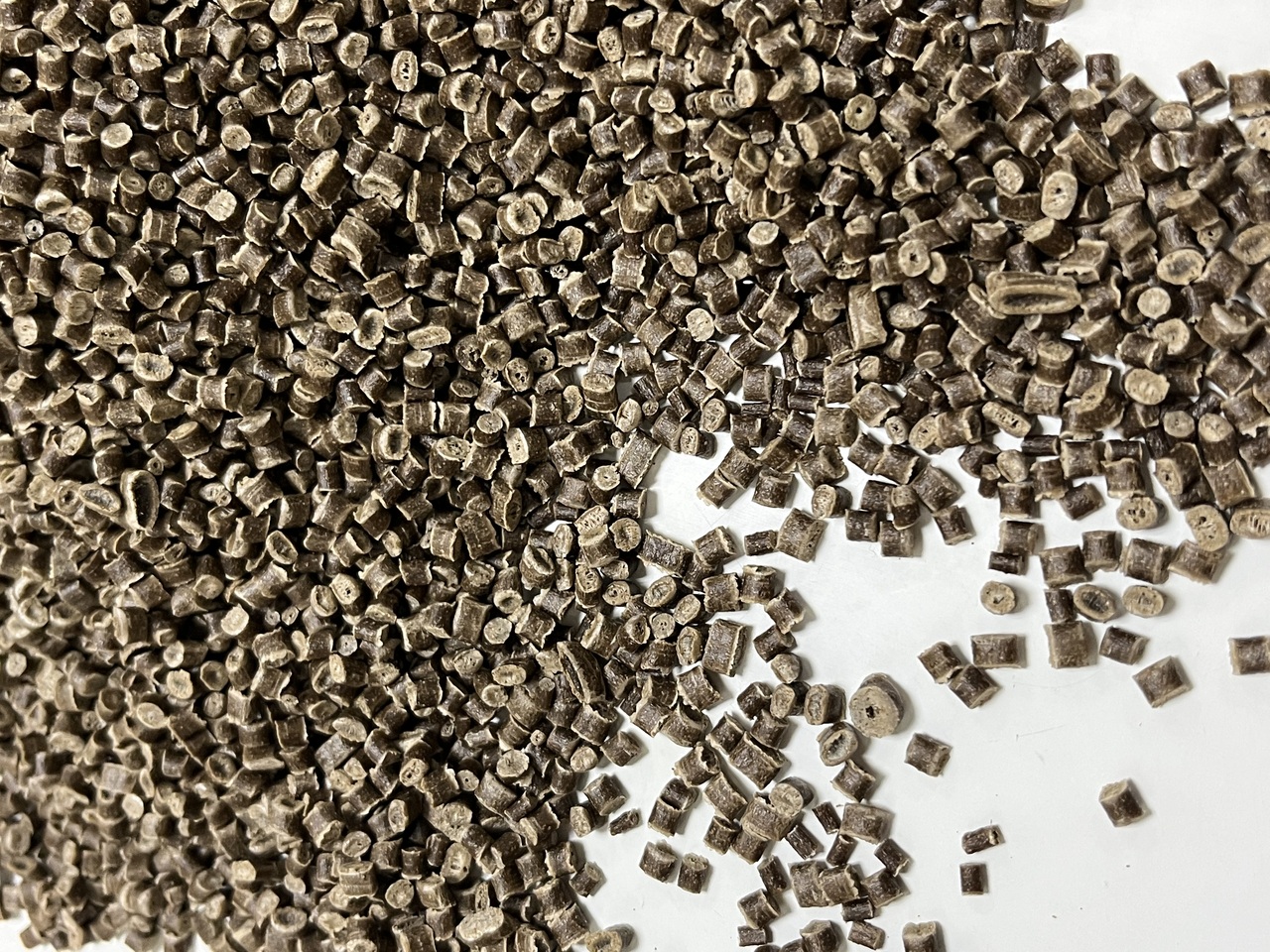Exploring Circular Economy Policy
Circular economy policy plays a vital role in driving the transition from a linear economic model to a circular one.
This blog explores the meaning of circular economy policy, its key principles, benefits, and the role it plays in shaping a sustainable future.
Understanding Circular Economy Policy
Circular economy policy refers to a set of strategies, regulations, and initiatives implemented by governments and organizations to promote a circular economic model. Unlike the traditional linear economy, which follows a "take-make-dispose" approach, the circular economy aims to keep resources in use for as long as possible.

In a circular economy, products and materials are designed with the intention of being reused, repaired, or recycled at the end of their life cycle, rather than being discarded as waste. The goal is to keep products and materials in circulation for as long as possible, extracting the maximum value from them and minimizing the environmental impact.
>>>> Learn more at: Exploring The Meaning of Circular Economy and Its Impact on Business
Key Principles of Circular Economy
The key principles of the circular economy form the foundation for transitioning from a linear "take-make-dispose" economic model to a more sustainable and regenerative approach. These principles guide the design and implementation of circular economy strategies and practices:
Design for Circular Systems:
Designing products, services, and systems with a focus on circularity is a fundamental principle of the circular economy. This involves considering the entire lifecycle of a product, from sourcing materials to end-of-life management. Designing for durability, reparability, and recyclability ensures that products can be reused, repaired, or recycled, minimizing waste and maximizing resource efficiency.
Keep Products and Materials in Use:
The circular economy emphasizes keeping products and materials in use for as long as possible. This principle encourages extending the lifespan of products through maintenance, repair, and upgrading. It also promotes sharing and collaborative consumption models, such as rental or leasing, to maximize the utilization of products.
Regenerate Natural Systems:
The circular economy recognizes the importance of regenerating natural systems and restoring ecosystems. This principle emphasizes the use of renewable resources and the adoption of regenerative practices in agriculture, forestry, and other industries. It encourages sustainable land management, biodiversity conservation, and the restoration of natural habitats.
Use Waste as a Resource:
In a circular economy, waste is seen as a valuable resource. This principle promotes the efficient management of waste through recycling, upcycling, and repurposing. By treating waste as a resource, it reduces the need for virgin materials and minimizes the environmental impact associated with resource extraction.
For example, coffee bio-composites made from coffee grounds and recycled plastics transform waste materials into valuable resources, minimizing the need for virgin materials and reducing the environmental impact of resource extraction. Instead of disposing of these grounds, innovative company - AirX has found a way to extract their valuable components and blend them with recycled plastics, typically polypropylene (PP) or polyethylene (PE). The result is a coffee bio-composite material that can be used as a sustainable alternative to traditional plastic materials.

Coffee bio-composites
Adopt Renewable Energy Sources:
Transitioning to renewable energy sources is a key principle of the circular economy. By replacing fossil fuels with renewable energy, such as solar or wind power, the circular economy aims to decouple economic growth from resource consumption and greenhouse gas emissions. Renewable energy sources contribute to a more sustainable and climate-friendly circular economy.
By embracing these key principles, businesses, governments, and individuals can contribute to a more sustainable and regenerative economy. The circular economy offers a transformative approach to address environmental challenges, promote resource efficiency, and create long-term economic and social benefits.
Benefits of Circular Economy Policy
Circular economy policy plays a crucial role in driving sustainable development and addressing pressing environmental challenges. By transitioning from a linear, take-make-dispose model to a circular approach, businesses and economies can unlock a wide range of benefits:
- Resource Conservation: By promoting strategies such as recycling, reuse, and remanufacturing, these policies help conserve valuable resources and reduce the extraction of raw materials. This not only helps protect the environment but also ensures the long-term availability of resources for future generations.
- Environmental Protection: Circular economy policies contribute to environmental sustainability by reducing pollution and minimizing the negative impacts of resource extraction, production, and disposal. By encouraging practices like eco-design, waste reduction, and efficient resource management, these policies help mitigate greenhouse gas emissions, decrease energy consumption, and minimize the release of harmful substances into the environment.
- Economic Growth and Job Creation: Circular economy policy can stimulate economic growth by fostering innovation, promoting the development of new industries, and creating employment opportunities. The shift towards a circular economy requires the development of technologies, processes, and business models that support sustainable resource management. This drives innovation and creates new markets, leading to job creation and economic prosperity.
- Cost Savings: By optimizing resource use, reducing waste generation, and implementing more efficient production processes, companies can minimize their operational expenses. Additionally, embracing circular economy practices often results in reduced dependence on raw material prices and less exposure to supply chain disruptions, providing businesses with greater financial stability.
- Collaboration and Knowledge Sharing: Circular economy policies foster collaboration among various stakeholders, including businesses, governments, academia, and civil society organizations. This collaboration facilitates the exchange of knowledge, best practices, and innovative ideas, accelerating the transition to a circular economy.
Circular Economy Policy and the Future
Circular economy policy holds significant promise for shaping the future of our society and addressing pressing global challenges. By promoting resource efficiency, waste reduction, and sustainable consumption and production practices, circular economy policy can contribute to a more resilient and sustainable future.
As we look to the future, circular economy policy offers a pathway towards a more sustainable, inclusive, and resilient society. By embracing the principles of circularity, governments, businesses, and individuals can contribute to a future where resources are used efficiently, waste is minimized, and the well-being of both people and the planet is prioritized. The implementation of robust circular economy policies today paves the way for a brighter and more sustainable future tomorrow.

Circular economy policy offers a more sustainable future by "take-make-dispose" approach.
Contact us
AirX, the world’s first carbon-negative bio-materialmade from coffee grounds, is a leading company specializing in the production of bio composite from recycled carbohydrates derived waste, including coffee grounds, coconut husk, husk, and bamboo. We are dedicated to promoting sustainability through the use of eco-friendly materials in their manufacturing process.
We are always here to help and provide the best service possible. If you have any questions or would like to receive advice and feedback directly from our sales staff, please do not hesitate to contact us. You can reach us through:
- Whatsapp: +84 969 742 950
- Email: [email protected]
We look forward to hearing from you!

